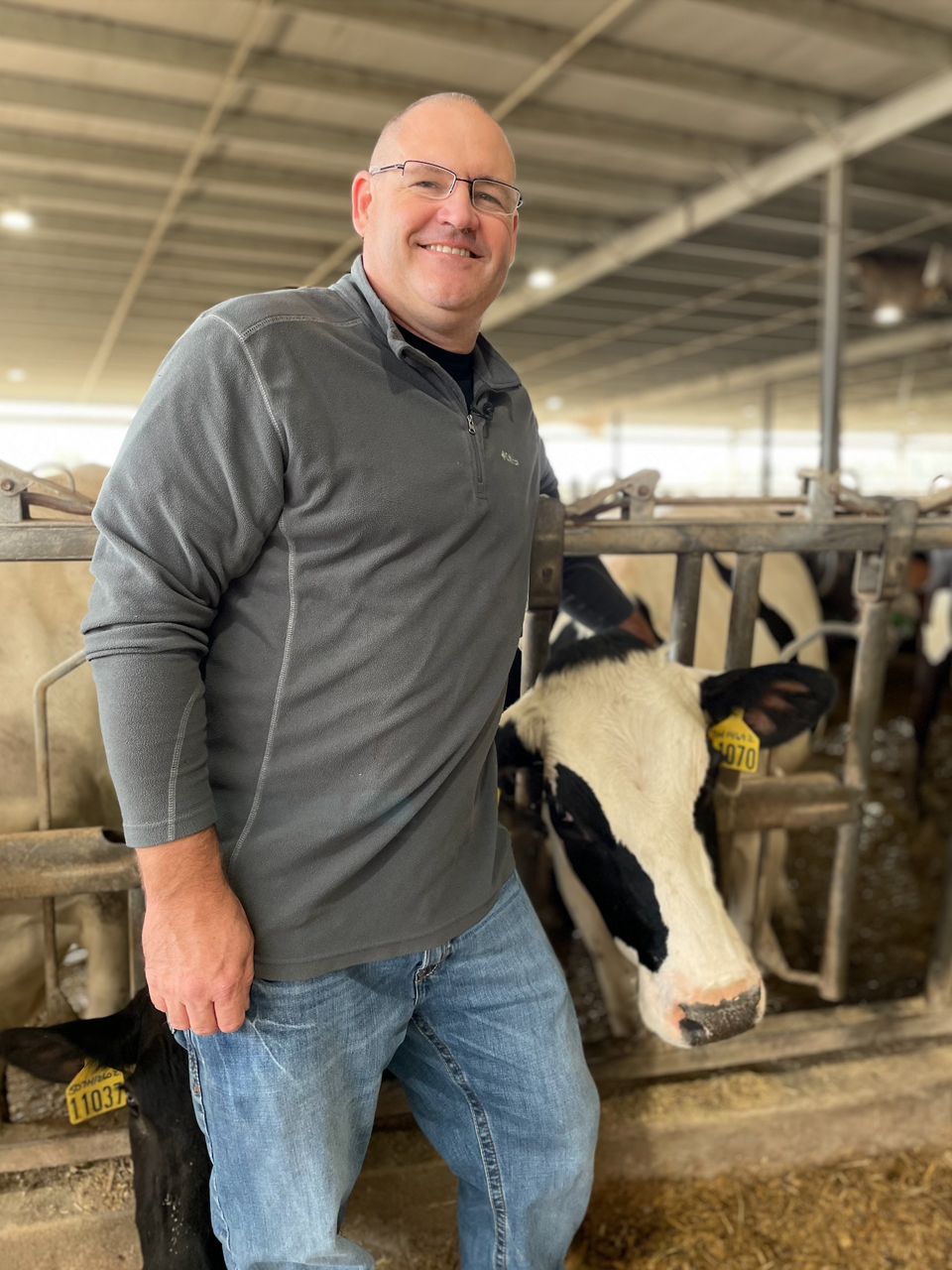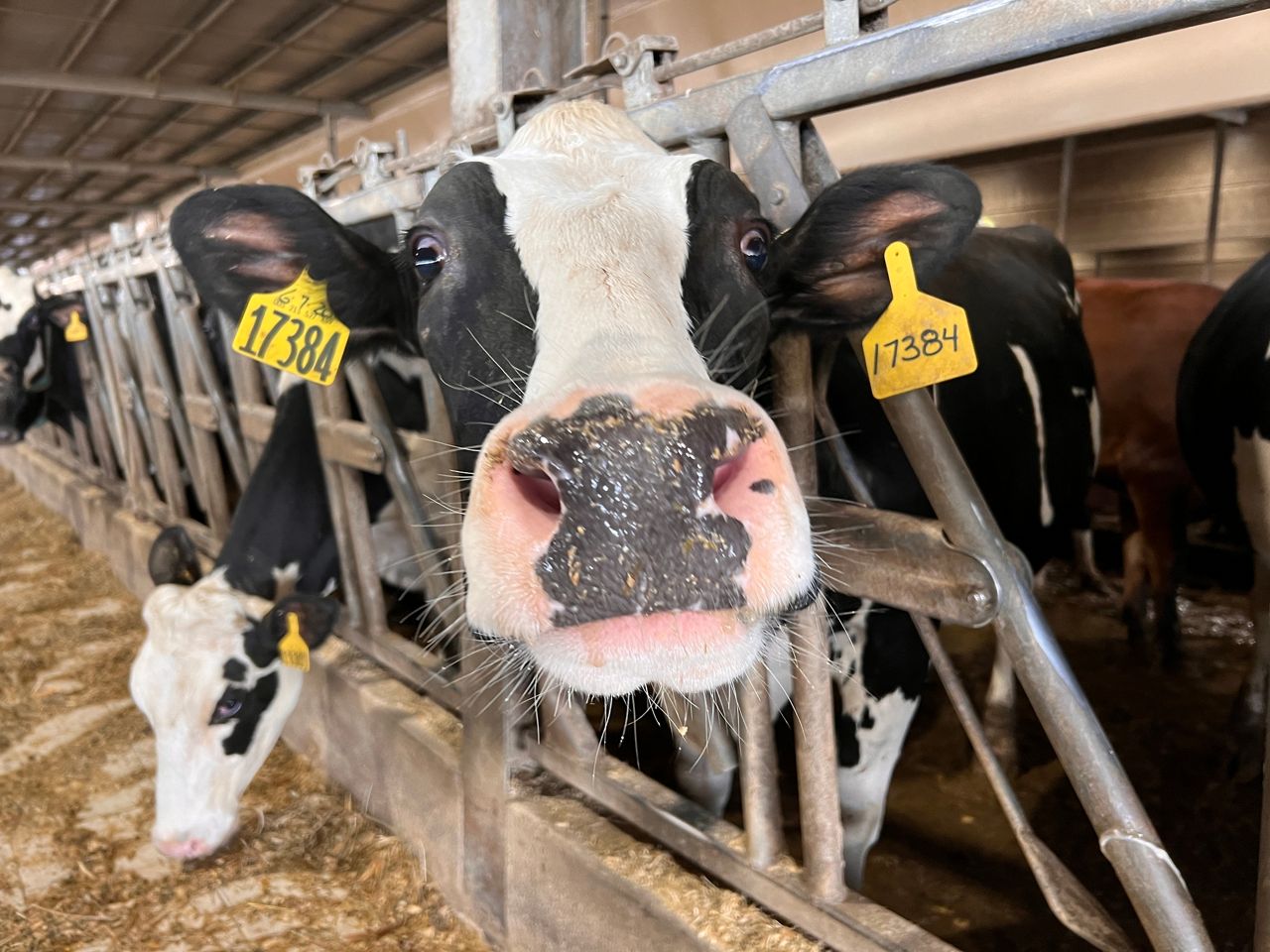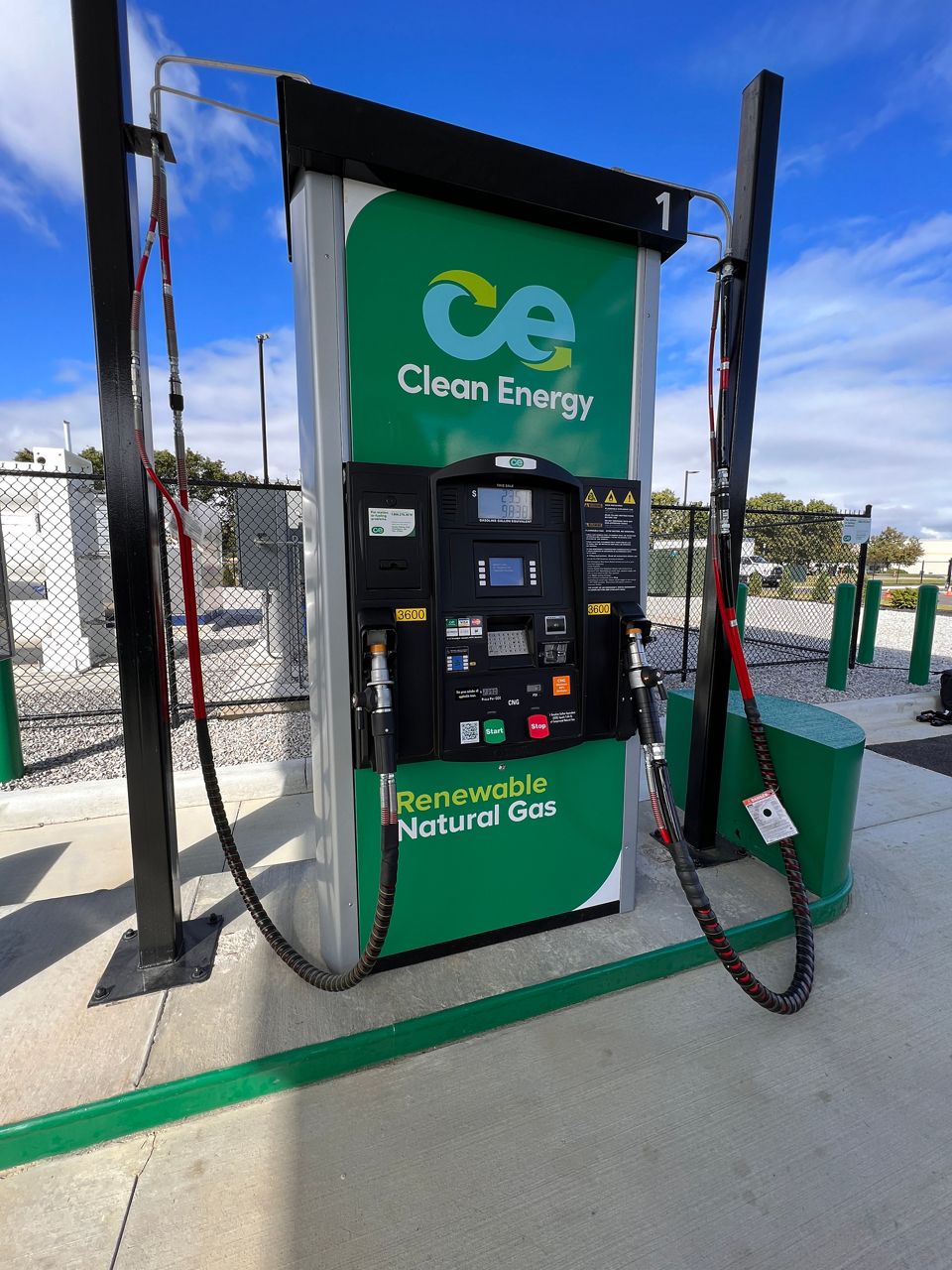GROVEPORT, Ohio — Cows produce a lot of dairy, but they also produce a lot of manure.
“The milking cows here produce about three semi loads of milk per day," said Evan Barton, the owner of South Fork Dairy Farm in Newark, OH. "And we also produce about 12 semi loads of manure per day."
Barton, a first-generation farmer, houses about 5,000 dairy cows on his 3,000 acre property. He and his team can milk 64 cows at once, which he said equates to about 350 cows per hour.

Outside on his property sit four massive lagoons full of manure. To the average onlooker, they look like normal ponds, but when they’re full, they hold about 30 million gallons of manure.
“There’s a lot of manure here,” Barton said. “And it's stored here until the crops are off, and we can apply that manure as fertilizer.”
Lagoons full of manure may look harmless, but they actually harm our environment.
Cow manure releases a potent greenhouse gas into the air called methane. It’s a gas the Environmental Protection Agency said is a big contributor to climate change.

But Barton is about to put his cows’ waste to work. He signed a deal with Clean Energy Fuels to put a methane digestor on site. When completed, the digester should produce 500,000 gallons of RNG a year from the manure produced by Barton’s dairy cows.
“To us it’s not waste, it’s actually very valuable fertilizer,” Barton said. “The methane digestor is going to eliminate the environmental damage it’s causing.”
The digestor will trap the methane and use it to produce renewable natural gas (RNG) which is known to be a carbon-neutral transportation fuel.
Andrew J. Littlefair, Clean Energy’s CEO, celebrated the partnership and the opening of a new renewable natural gas filling station in Groveport at the end of September. The Groveport station is the first construction project completed in an agreement between Clean Energy and Amazon. There are plans to build 19 new stations around the nation that should be operational by the end of the year, adding to CleanEnergy’s fueling network of 550 stations in North America.
“We are here to officially open the first Amazon renewable natural gas fueling station here in Groveport,” Littlefair said.

Clean Energy Fuels said the Groveport station will dispense 700,000 gallons of RNG annually instead of diesel, which will reduce carbon emissions by 6,848 metric tons, the equivalent of growing 114,133 trees for ten years, removing 1,489 passenger cars from the road, or reducing 2,750 tons of landfill waste.
The benefits extend beyond helping the environment. By adding a methane digestor at Barton’s farm it gives him another income stream. The manure he uses as fertilizer for his crops won’t smell as bad, and his dairy products will have a lower carbon footprint.
“The consumer wants products that are made in an environmentally sustainable manner," he said. "And that gets the dairy industry there that people can have confidence when they eat cheese and drink milk and eat ice cream, that they're not harming the environment to do it. And that's, for us, the biggest part. I love to milk cows, and I love to dairy farm. And this allows us to produce a product that the, you know, environmentally conscious consumer, you know, can feel good about.”
Currently, about 52 Amazon trucks can be filled up at the Groveport station overnight, but the station can expand to fuel about 83 trucks. It’s the first of many that are being built around the country specifically for Amazon, but it will also provide public access to local fleets seeking RNG.
More companies are making commitments to cut their carbon footprint. Many are turning to RNG as it is a replacement for diesel.
“What makes RNG so powerful and it's such an impact on our fight against climate change is because it dramatically reduces harmful greenhouse gases, both at the source at the dairy and on the road,” Littlefair said.
Cows may produce a lot of milk and manure, but now they’re helping produce a renewable fuel that’s helping save our future.
“I'm honored and humbled as a dairy farmer to be part of something like this,” Barton said.
The methane digestor at South Fork Dairy Farm is expected to be completed by 2023.
For more information about Clean Energy Fuels, click here.



